Gut
Recent articles
Many autism-linked proteins influence hair-like cilia on human brain cells
The finding may help explain autism’s association with multiple co-occurring conditions that involve cilia defects.
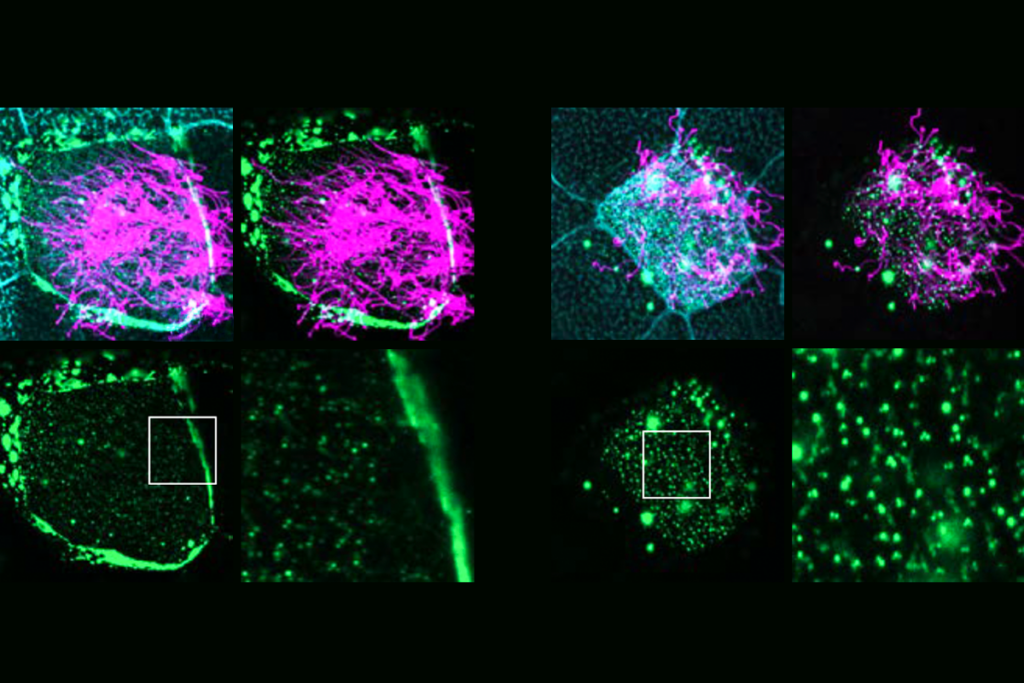
Many autism-linked proteins influence hair-like cilia on human brain cells
The finding may help explain autism’s association with multiple co-occurring conditions that involve cilia defects.
Opioid receptors may guide formation of gut nervous system in zebrafish
Fish lacking functional copies of the receptors have fewer enteric neurons than usual, but the findings await further validation.
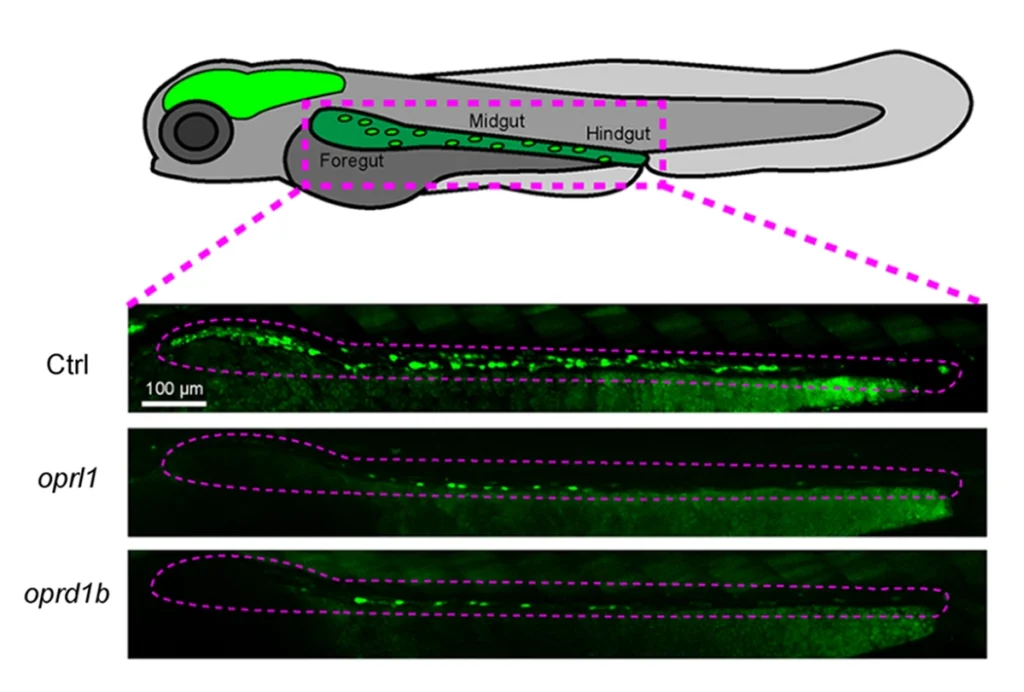
Opioid receptors may guide formation of gut nervous system in zebrafish
Fish lacking functional copies of the receptors have fewer enteric neurons than usual, but the findings await further validation.
Year in Review: Spectrum’s best in 2023
Here are five must-reads from our coverage of autism research over the past 12 months.

Year in Review: Spectrum’s best in 2023
Here are five must-reads from our coverage of autism research over the past 12 months.
Gut microbiome meta-analysis reveals consistent autism signal
But the field needs to move on from cross-sectional studies to gain insights into the causes and consequences of the association, experts say.
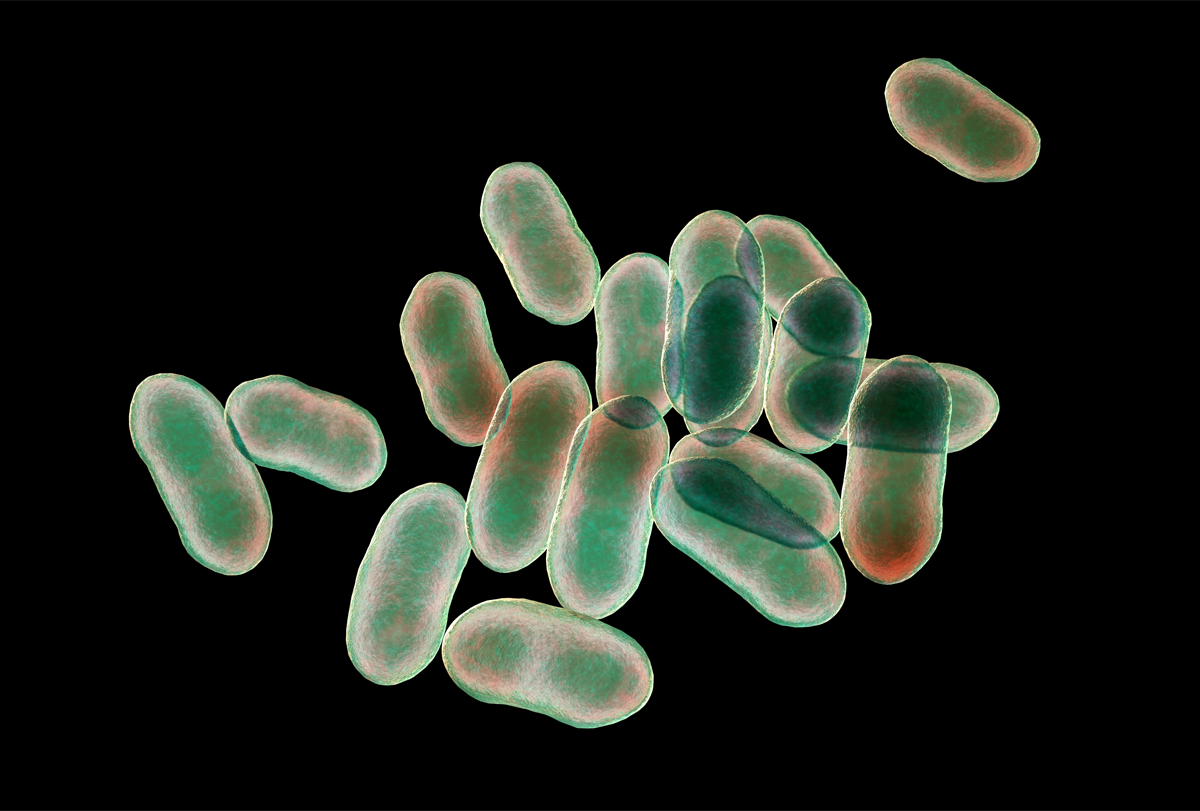
Gut microbiome meta-analysis reveals consistent autism signal
But the field needs to move on from cross-sectional studies to gain insights into the causes and consequences of the association, experts say.
Null and Noteworthy: COVID-19 conclusions; diagnosis duplication; oxytocin again
This month’s newsletter explores the pandemic’s effects on autism rates, trends in co-occurring mental health conditions, and the impact of intranasal oxytocin.

Null and Noteworthy: COVID-19 conclusions; diagnosis duplication; oxytocin again
This month’s newsletter explores the pandemic’s effects on autism rates, trends in co-occurring mental health conditions, and the impact of intranasal oxytocin.
Null and Noteworthy: Medication timing; oxytocin amounts; sensory sameness
Parents’ health, treatment dosages and sensory perception feature in this month’s crop of null and replicated results.
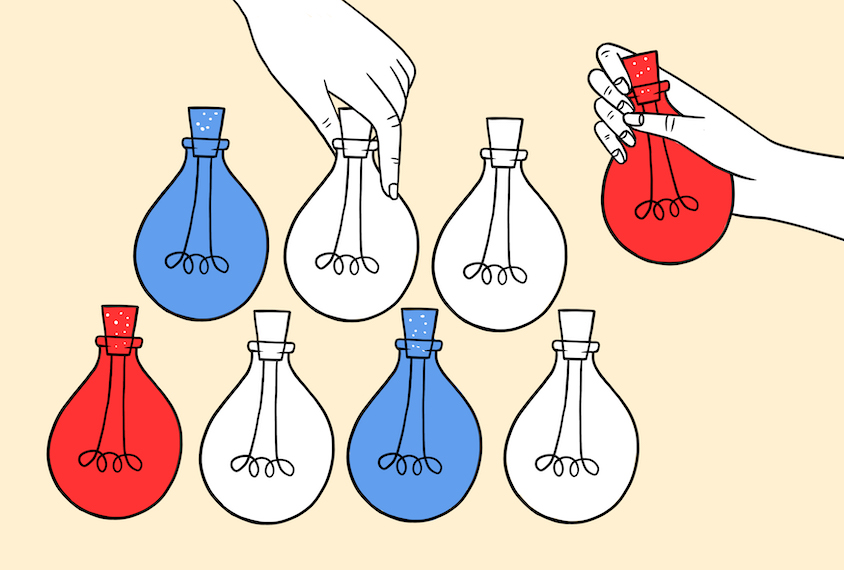
Null and Noteworthy: Medication timing; oxytocin amounts; sensory sameness
Parents’ health, treatment dosages and sensory perception feature in this month’s crop of null and replicated results.
Autism linked to inflammatory bowel disease in parents
The inflammation associated with the disease, particularly in mothers, may contribute to autism traits in children.
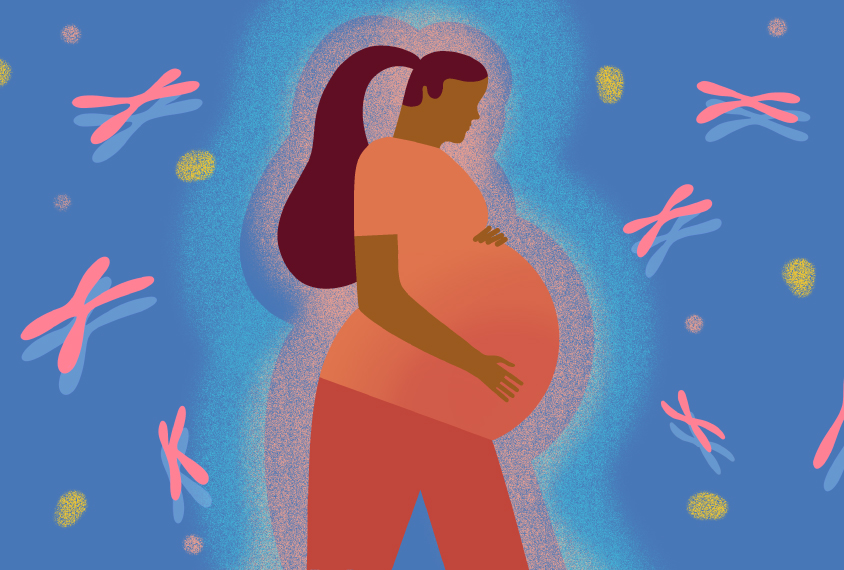
Autism linked to inflammatory bowel disease in parents
The inflammation associated with the disease, particularly in mothers, may contribute to autism traits in children.
Gut molecule linked to decreased myelination in mouse brains
Targeting the molecule, 4EPS, with an experimental drug may be a way to ease anxiety for autistic people, the researchers say. But not everyone is convinced.
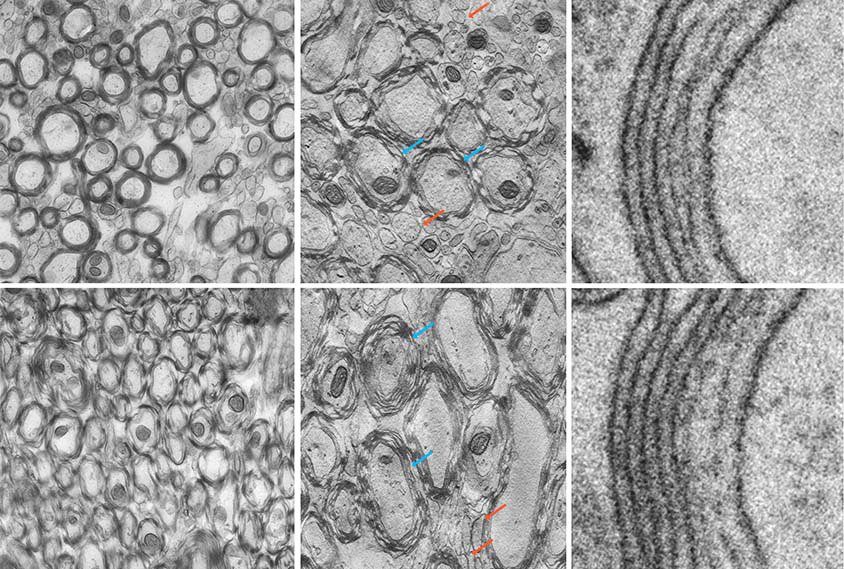
Gut molecule linked to decreased myelination in mouse brains
Targeting the molecule, 4EPS, with an experimental drug may be a way to ease anxiety for autistic people, the researchers say. But not everyone is convinced.
Infection in pregnant mice ups risk of gut problems in pups
Infection during pregnancy can tweak a mouse’s gut microbiome in ways that have lasting effects on her pups’ immune system and increase their chances of gut inflammation, a new study suggests.
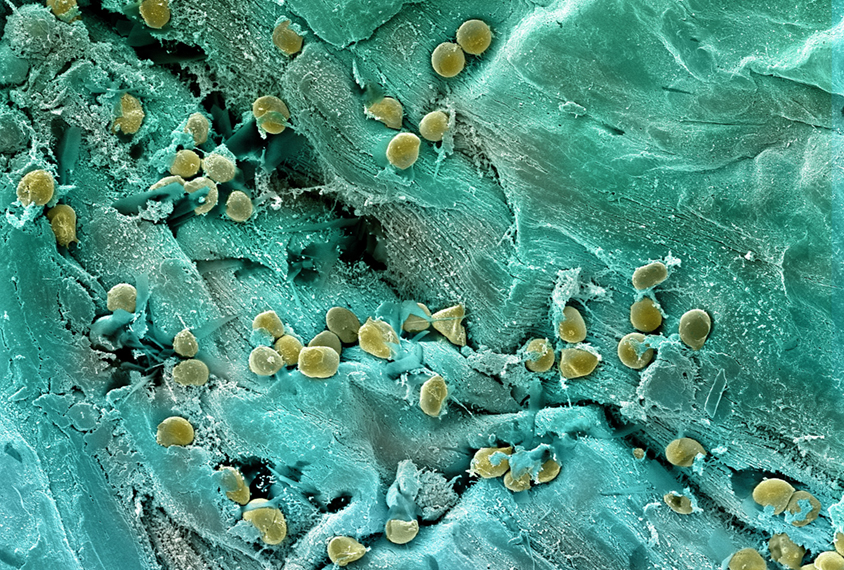
Infection in pregnant mice ups risk of gut problems in pups
Infection during pregnancy can tweak a mouse’s gut microbiome in ways that have lasting effects on her pups’ immune system and increase their chances of gut inflammation, a new study suggests.
Despite flurry of findings, doubts dog gut microbes’ role in autism
The possibility of microbial treatments for autism has inspired a burst of research and nascent clinical trials, but new research suggests these efforts rest on shaky scientific ground.
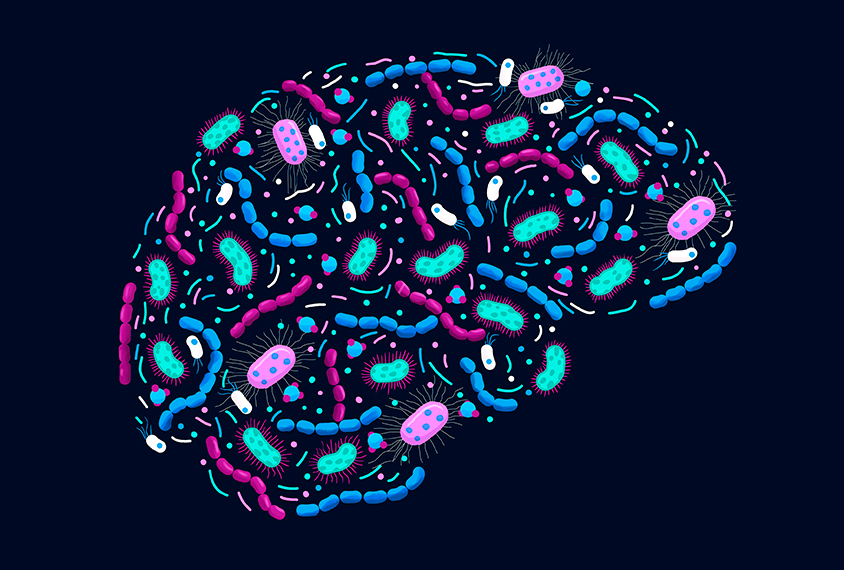
Despite flurry of findings, doubts dog gut microbes’ role in autism
The possibility of microbial treatments for autism has inspired a burst of research and nascent clinical trials, but new research suggests these efforts rest on shaky scientific ground.
Explore more from The Transmitter
Lack of reviewers threatens robustness of neuroscience literature
Simple math suggests that small groups of scientists can significantly bias peer review.

Lack of reviewers threatens robustness of neuroscience literature
Simple math suggests that small groups of scientists can significantly bias peer review.
Dendrites help neuroscientists see the forest for the trees
Dendritic arbors provide just the right scale to study how individual neurons reciprocally interact with their broader circuitry—and are our best bet to bridge cellular and systems neuroscience.

Dendrites help neuroscientists see the forest for the trees
Dendritic arbors provide just the right scale to study how individual neurons reciprocally interact with their broader circuitry—and are our best bet to bridge cellular and systems neuroscience.
Two primate centers drop ‘primate’ from their name
The Washington and Tulane National Biomedical Research Centers—formerly called National Primate Research Centers—say they made the change to better reflect the breadth of research performed at the centers.

Two primate centers drop ‘primate’ from their name
The Washington and Tulane National Biomedical Research Centers—formerly called National Primate Research Centers—say they made the change to better reflect the breadth of research performed at the centers.